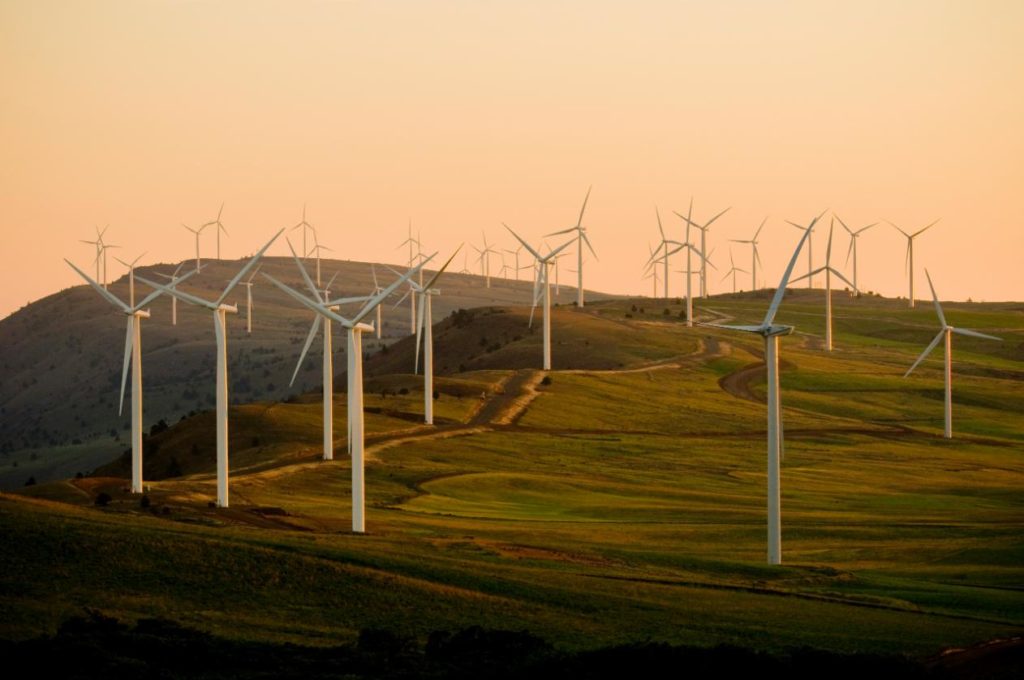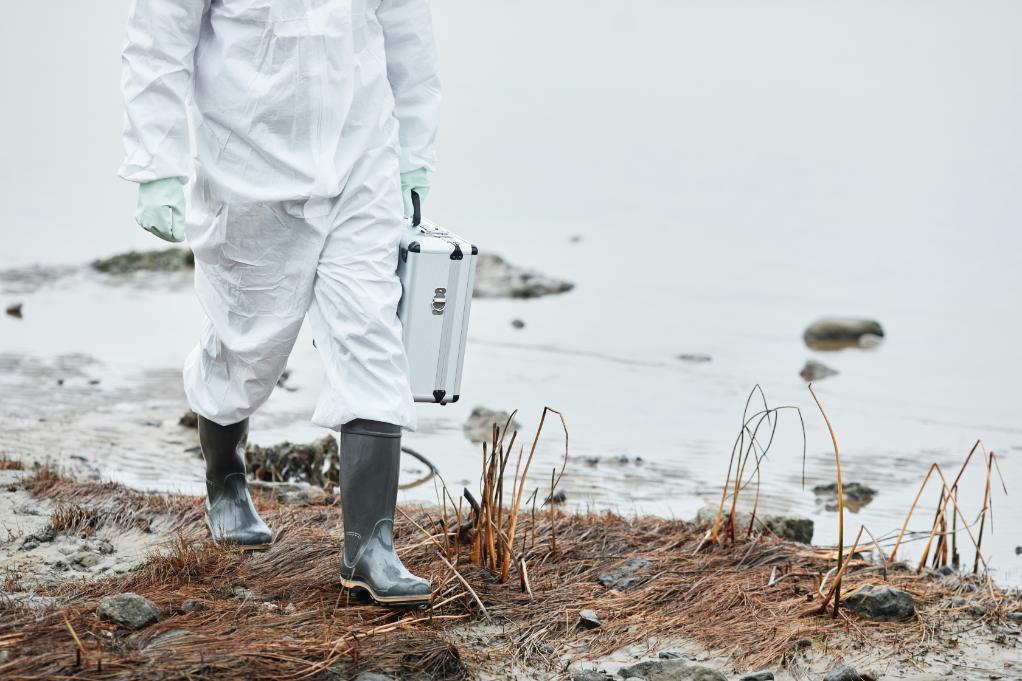Picture yourself in a ‘nature job‘.
Are you knee-deep in the dirt for a couple of coins and the chance to help an adorable animal?
While this may be a slight exaggeration, it’s a very common image indeed. And unfortunately, it can discourage many from wanting to work in nature (or imagining how they can afford to!) But is this muddy myth actually true?
Luckily, nature-related jobs aren’t all low pay and grubby boots. In fact, there are many well-paid roles that’ll allow you to protect and restore the environment.
The nature sector encompasses a range of industries and positions – and opportunities will continue to grow as governments and companies recognize the urgent need to tackle our climate and biodiversity challenges. So, rest assured that there are jobs in nature that pay well already out there, and we can expect more in the future.
To give you a bit of inspiration, let’s start by looking at some examples of nature jobs that pay well.* Hopefully, one (or some) of these will inspire you to train for, switch to, or actively seek a new nature role.
*For this article, ‘well-paid’ is defined as above ca. USD 70,000/EUR 60,000 a year.
14 Examples of nature jobs that pay well
1. Renewable Energy Consultant

Description: advise organizations on sustainable energy solutions – helping them transition to renewable sources like solar, wind, and bioenergy.
Background: normally, a degree in environmental science, engineering, or a related field is needed. Industry experience in energy management or consulting is useful, too.
Average salary: $107,000 | €58,000
2. Environmental Project Manager
Description: manage environmental projects, overseeing budgets, timelines, and project goals to make sure goals are met.
Background: While a degree isn’t always required, project management experience or environmental knowledge is very valuable.
Average salary: $83,973 | €67,000
3. Sustainability Communications Specialist
Description: create transparent communications around an organization’s ESG commitments, and promote their sustainability initiatives to the public, media, and others.
Background: experience in communications or environmental studies is beneficial, but specific degrees aren’t always necessary.
Average salary: $71,397 | €55,250
4. Chief Sustainability Officer (CSO) or Sustainability Director
Description: set and direct organizations’ environmental strategy, overseeing sustainability programs, and aligning company practices with environmental standards.
Background: usually needs a business or environmental science degree and a lot of experience.
Average salary: $157,500 | €150,000
5. Senior Environmental Consultant
Description: advise organizations and governments on reducing their environmental impact, promoting biodiversity, nature conservation, and complying with environmental regulations.
Background: typically a degree in environmental science or a related field, along with experience in environmental assessments and consulting.
Average salary: $84,607 | €61,045
6. Climate Scientist

Description: study climate patterns, focusing on how environmental changes impact ecosystems, human communities, and the planet.
Background: generally requires an advanced degree in climate science, meteorology, or environmental science.
Average salary: $95,000 | €77,992
7. Environmental/Biodiversity/Climate Data Analyst
Description: collect and analyze data on environmental issues, translating it into actionable insights for companies and organizations.
Background: You may need a degree in data science or environmental science. You’ll definitely need data analysis and statistics skills.
Average salary: $82,640 | €71,000
🍃 Discover our paid course to learn how to get a nature job!
8. Urban Planner (Sustainability Focus)
Description: design and implement eco-friendly urban spaces, balancing development needs with environmental considerations.
Background: A degree in Urban Planning or Environmental Science.
Average salary: $80,608 | €72,250
9. Sustainable Finance Analyst
Description: assess investments that align with environmental, social, and governance (ESG) goals to help organizations make sustainable financial decisions.
Background: typically needs a degree in finance, economics, or environmental science, with additional knowledge of ESG metrics and sustainable finance practices.
Average salary: $84,475 | €79,900
10. Wildlife Biologist

Description: study ecosystems, monitor biodiversity, and develop conservation plans to protect species and habitats.
Background: a degree in biology, ecology, or environmental science, with advanced degrees beneficial for higher-level roles.
Average salary: $72,953 | €62,860
11. Sustainability Manager
Description: introduce sustainable practices within organizations, focusing on reducing environmental impact. This role requires a degree in environmental science, business, or sustainability, along with experience in project management.
Average salary: $102,859 | €65,000
12. Sustainable and Use/Agroforestry Specialist
Description: design land-use practices that support biodiversity, focusing on sustainable agriculture, forestry, and forest conservation. A background in agriculture, environmental science, or forestry usually is needed.
Average salary: $89,104 | €68,000
13. Founder or Freelancer for Nature
Description: create services or products that benefit nature – and be your own boss. Examples include founding your own nature tech start-up or sustainable design studio.
Background: no particular certificates or degrees are strictly needed. However, the more expertise you can prove you have, the easier it should be to attract clients.
Average salary: this really depends on the product or service you’re selling, but unlike employment, there’s no salary limit!
14. Switching to a Nature-Positive Company
If none of the above caught your eye, ask yourself, could you be doing exactly what you’re doing now (and being paid the same or higher) for a company that’s more focused on protecting the planet? Side-stepping (or crab walking) is always an option, too!
👋 Check out our step-by-step guide to switching to a nature career.
How to find (and land) a well-paid nature job
Now we know some of the well-paid nature occupations that are out there, let’s look at how to get one. Obviously, this will vary based on factors like what kind of role you want and the background, abilities, experience, and connections you already have.
Kickstart your doubly rewarding nature career by following these five rules:
1. Know what you want
Yes, you know you want a high-paying role with purpose. (you wouldn’t be reading this blog otherwise!), but are there any other must-haves you need from a job to thrive? For e.g. flexible hours, a level of creativity or autonomy. Chasing a particular payslip may lead to an unrewarding professional life if you have other needs you haven’t considered.
2. Know what’s in demand

Once you’ve considered your must-haves, research and identify which fields are growing quickly and hiring urgently (e.g., environmental consulting, renewable energy, and sustainable agriculture). Which roles in these fields are most in demand? Roles that are highly sought after will come with a higher annual wage.
3. Know what’s required
In order to get your dream role, you may need a particular qualification, experience, or backstory. Do you already have this, or will you need to acquire it through studying, volunteering, or other means (taking part in a secret ritual under a full moon, maybe?). Note that the more specialized a role is, the higher the pay it’s likely to have.
4. Know where to find it
Firstly, get connected. Networking at industry events, webinars, and workshops can open doors to positions that aren’t even advertised.
Secondly, you’ll need to regularly check:
- The jobs posted in Wildya’s job tab.
- The nature jobs that are shared in other communities like Work on Climate, Terra.do, Creatives for Climate, and Good Ripple.
- Other industry-specific job boards such as Conservation Job Board, EuroClimateJobs, environmentjob, Climatebase, and Conservation Careers.
5. Know how to seal the deal
No, not that type of seal, silly. It’s a competitive world out here, and knowing where to find your dream job isn’t enough. Now, you have to impress the recruiter, manager (and possibly your future teammates, too). This means:
1. Creating an engaging and highly relevant CV.
2. Crafting a compelling cover letter.
3. Acing the interviews (and any associated tests).
Top tip: If you can get someone who’s already in the company or on the team to recommend you, this is usually a huge help!
Make it rain
Nature enthusiasts should rest assured that there are nature jobs that pay well out there! So, a fulfilling and well-paid nature career is entirely possible.
By focusing on in-demand skillsets, networking strategically, and making informed decisions about your career path, you can land an environmental role that not only nurtures nature but will also give you the financial stability you deserve.
Whether you’re just starting out or side-stepping into a nature-focused role, the path to a rewarding, impactful career in nature begins with the steps you take today. Ready to dive on in?
Help your purse – and the planet!
If you’re keen to find a nature job that pays well, check out Wildya’s paid course on “How to get a nature job?”. You’ll get the knowledge you need to ace the process – and 15% of total sales goes towards protecting Australia’s biodiversity (via Wilderlands). You can also join the Wildya herd to build a wilder world with like-minded people like you!


